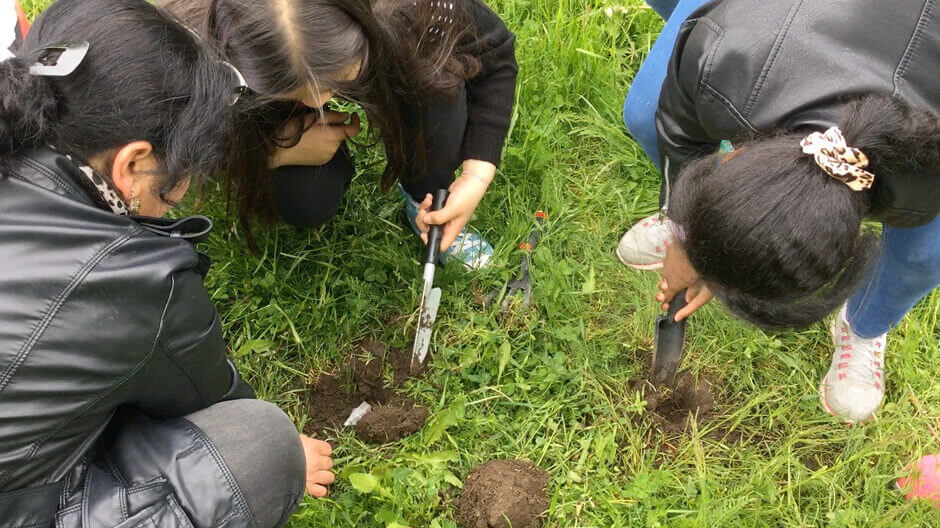Case study: Teatime4science – The Tea Bag Index - a citizen science-based tool to study decomposition

Photo acknowledgement: Public & Science Sweden
- Secondary, Vocational
- Outdoor
- Citizen science, Experiment, Hands-on activity
- Sweden
Teatime4science – The Tea Bag Index – a citizen science-based tool to study decomposition
Teatime4science, also known as the Tea Bag Index, is a global experiment engaging people worldwide in carrying out decomposition studies. In 2015 the experiment was run as a citizen science project as part of European Researchers’ Night activities in Sweden.
The experiment involves burying tea bags in the ground and later weighing them to measure decomposition rates.
The Tea Bag Index was developed by J. Keuskamp and co-workers (2013). In 2015 Judith Sarneel and the non-profit organisation Public & Science initiated the Tea Bag Experiment in Sweden (known as Tepåseförsöket in Swedish) in which 250 classes participated. In addition, the Swedish Research Council provided funding for the teatime4science project to take the Tea Bag Index global.
Objective
The main objectives are to teach pupils:
- about biological processes in the soil which transform organic material into carbon dioxide and soil.
- that the decomposition process directly affects the whole of the Earth’s climate.
- about scientific methods and how research is conducted.
Approach
Teabags filled with two types of tea—green and red Rooibos—are buried at a depth of 8cm for 90 days to study decay rates of plant material. The contrasting leaf materials of Rooibos (more woody) and green tea facilitate understanding of decomposition differences. Additionally, the experiment explores the influence of warming on decomposition by using mini greenhouses (plastic bottles) to create a greenhouse effect over half of the tea bags.
The experiment takes place preferably on natural meadow land free from fertilizers. Before and after burial, tea bags are weighed to measure decomposition, and soil samples are collected to assess moisture levels. These data are submitted to researchers for analysis.
The case is interesting since pupils engage in a hands-on decomposition study while contributing to real research. Pupils work with hypotheses on how different temperatures, soil types and vegetation affects decomposition and learn that many factors on the ground will affect the results.
The project provides clear teaching instructions and lesson plans, aligning with school curricula, offering both basic and advanced exercises adaptable to different pupil levels and subjects.
